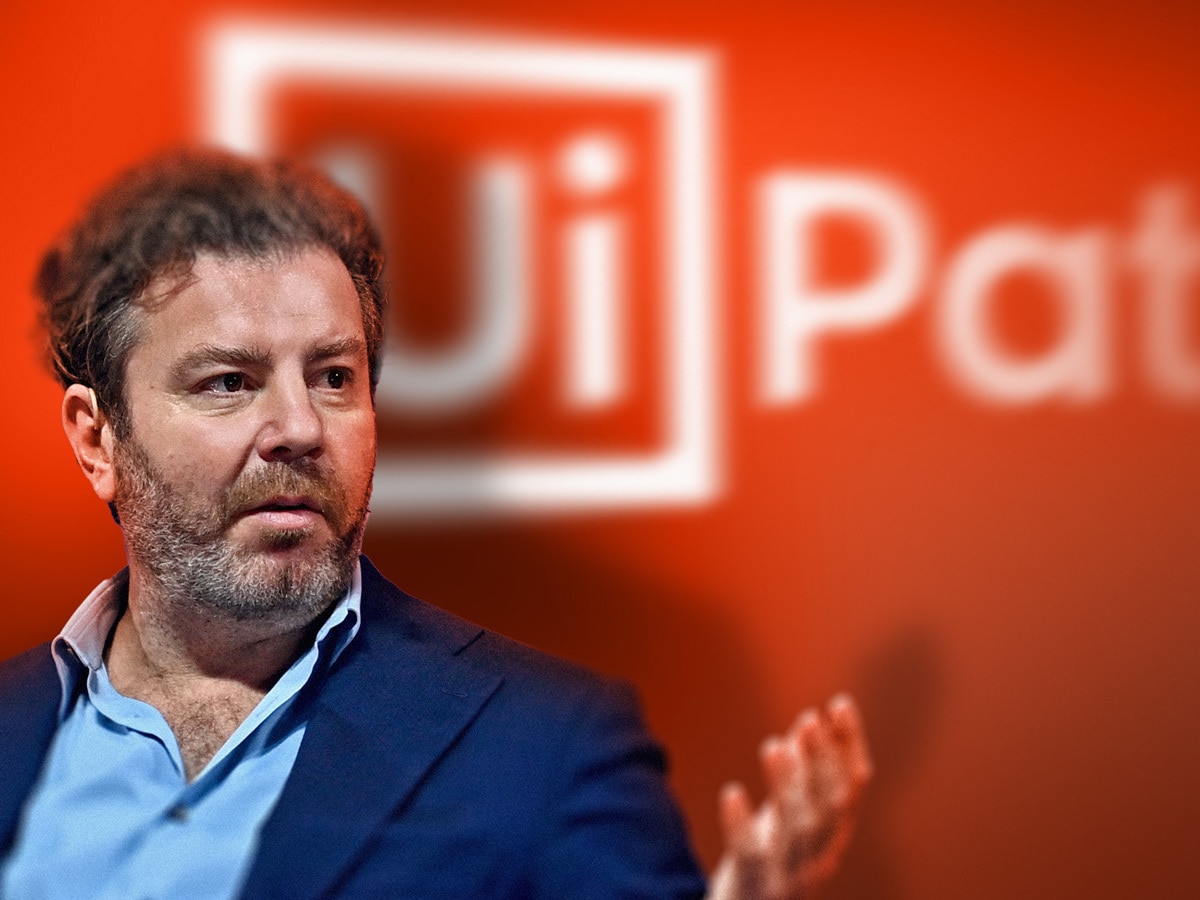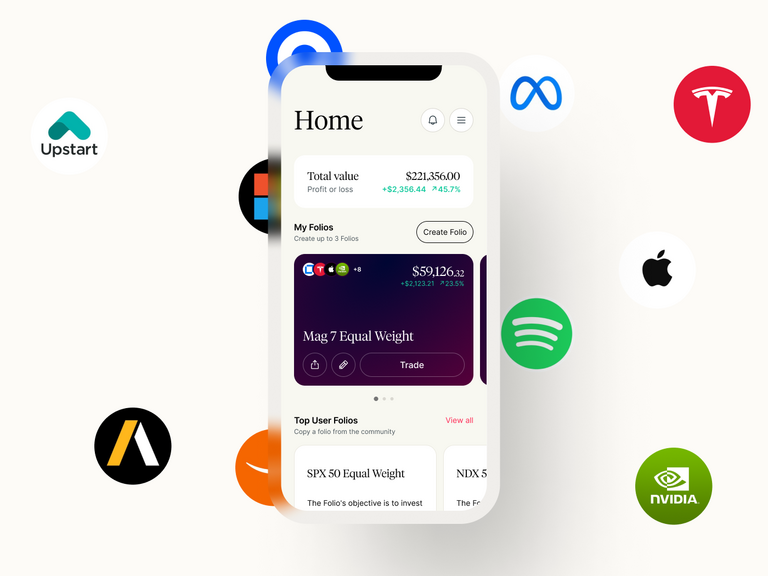Thematic investing relies on exposure to long-term trends. However, many thematic indices and funds contain stocks that do not align with their stated objectives.
Seasoned emerging markets (EM) investor Kevin T Carter made this point on OPTO Sessions when explaining the drawbacks of the MSCI Emerging Markets Index, which, he says, selects companies based on the location of their headquarters. However, “When you’re investing in EM consumer technology, you don’t care about where the company is. You care about where the revenue is coming from.”
In other words, to gain exposure to a trend (such as EM consumer technology), it’s important to clearly identify a company’s, fund’s, or index’s source of revenue. In this OPTO series, we examine stocks that offer the purest exposure to key themes through a detailed assessment of their revenue streams.
Since its IPO in 2021, UiPath [PATH] has become a popular stock with retail investors hoping to catch the gale-force tailwinds surrounding the artificial intelligence (AI) theme.
AI + Automation
UiPath is best-known for its robotic process automation (RPA) software.
This is a type of software that “makes it easy to build, deploy, and manage software robots that emulate human actions interacting with digital systems and software”, according to the company’s website. These software robots can identify key information on a screen and carry out actions, such as clicking buttons, more efficiently and consistently than a human can.
This means that many of the more repetitive, predictable tasks that appear in workflows can be automated. Not only does this increase productivity, but, according to research from Forrester Consulting commissioned by UiPath, it also improves employee engagement — because more time can be spent on more complex, creative tasks, and less time on boring, low-value-add tasks.
On its website, IBM [IBM] expands on UiPath’s definition of RPA by explaining that it uses software scripts in order to “emulate human processes”.
UiPath, in its own explainer on RPA, makes it clear that RPA and AI are two distinct forms of technology. However, UiPath’s software is not pure RPA; AI has been infused “into every part of the UiPath Platform”, according to the company’s Co-founder and Chief Innovation Officer Daniel Dines.
Consequently, UiPath is a favourite among thematic AI investors.
It has a 9.5% weighting in the ARK Autonomous Technology and Robotics ETF [ARKQ] as of 20 January, making it the fund’s second-biggest holding. The Global X Robotics & Artificial Intelligence ETF [BOTZ] has it weighed at 4.6%, making it the sixth-biggest holding.
Narrow Definitions
AI is a broad term, but at its heart it comprises a number of related technological concepts that further the ability of computers to automate certain tasks.
The American computer scientist John McCarthy, considered one of the founding fathers of AI, described it as “the science and engineering of making intelligent machines, especially intelligent computer programs. It is related to the similar task of using computers to understand human intelligence, but AI does not have to confine itself to methods that are biologically observable."
According to strategy consultancy McKinsey, some of the key technologies that underpin AI are:
- Machine learning: algorithms that can detect patterns and make predictions based on data. Machine-learning algorithms are also adaptive, meaning that they can respond to past results in order to improve their future performance.
- Deep learning: an advanced form of machine learning that can process a wider range of input types and requires less human intervention. Deep learning programs process data using neural networks, which are based on how neurons interact in human brains.
- Generative AI: an AI program that can generate seemingly original content in response to a prompt.
Given all of this, the distinction between RPA and AI is arguably not as stark as UiPath makes it out to be.
Both are forms of technology that automate processes normally performed by humans. While RPA is distinct from other forms of AI — for example, generative AI programs such as ChatGPT — both would fall under IBM’s categorisation of ‘narrow AI’: software that “can be trained to perform a single or narrow task, often far faster and better than a human mind can”. At any rate, UiPath’s RPA software directly leverages AI throughout its business automation platform.
UiPath breaks its revenue down into three categories:
Licences
Subscription services
Professional services and other
Licences and subscription services are subtly different: while the former denotes licences for the use of UiPath’s proprietary software plus maintenance and support, the latter grants customers access to software that UiPath hosts itself (in other words, SaaS).
Given that both pertain directly to access to UiPath’s software, and that AI is infused throughout its RPA products, all of this revenue can be attributed to demand for AI technology.
Professional services and other revenue “consists of fees associated with professional services for process automation, customer education, and training services”, said UiPath in its Q3 2024 earnings report. Implicitly, all of these services are offered to (prospective or actual) users of UiPath’s software; therefore, this revenue can also be attributed to demand for AI.
In all, therefore, 100% of UiPath’s revenue can be described as AI-related.
Competition and Volatility
There are significant tailwinds operating in favour of companies involved in AI, most notably increased public attention to the theme following the launch of ChatGPT in November 2022.
The increased interest in generative AI could prove to be either a headwind or a tailwind for UiPath, according to Keith Bachman, an analyst at BMO Capital Markets. In a January client note seen by Investor’s Business Daily, Bachman said that, while generative AI could increase the demand for RPA software, it is also encouraging other players — such as Microsoft [MSFT] — to enter the space, increasing UiPath’s competition.
In the 12 months to 21 February, the Nasdaq CTA Artificial Intelligence Index gained 30.1%.
UiPath shares, over the same period, gained 61.9%. The stock has fluctuated through 2024 to date, however, having fallen 4.1%.
UiPath is more volatile than the average AI stock. It tends to outpace the gains of the Nasdaq CTA Artificial Index during bull runs, but its losses have been greater than that of the index during downtrends.
UiPath has not released earnings yet in 2024, but is expected to do so on 13 March.
A consensus among analysts polled by Refinitiv forecasts it will post quarterly revenue of $383.8m and generate EPS of $0.16. These figures, if met, would represent year-over-year increases of 24.4% and 6.7%, respectively.
Over the past 12 months, ARKQ and BOTZ have gained 11.8% and 30.3% respectively.
Disclaimer Past performance is not a reliable indicator of future results.
CMC Markets is an execution-only service provider. The material (whether or not it states any opinions) is for general information purposes only, and does not take into account your personal circumstances or objectives. Nothing in this material is (or should be considered to be) financial, investment or other advice on which reliance should be placed. No opinion given in the material constitutes a recommendation by CMC Markets or the author that any particular investment, security, transaction or investment strategy is suitable for any specific person.
The material has not been prepared in accordance with legal requirements designed to promote the independence of investment research. Although we are not specifically prevented from dealing before providing this material, we do not seek to take advantage of the material prior to its dissemination.
CMC Markets does not endorse or offer opinion on the trading strategies used by the author. Their trading strategies do not guarantee any return and CMC Markets shall not be held responsible for any loss that you may incur, either directly or indirectly, arising from any investment based on any information contained herein.
*Tax treatment depends on individual circumstances and can change or may differ in a jurisdiction other than the UK.
Continue reading for FREE
- Includes free newsletter updates, unsubscribe anytime. Privacy policy





